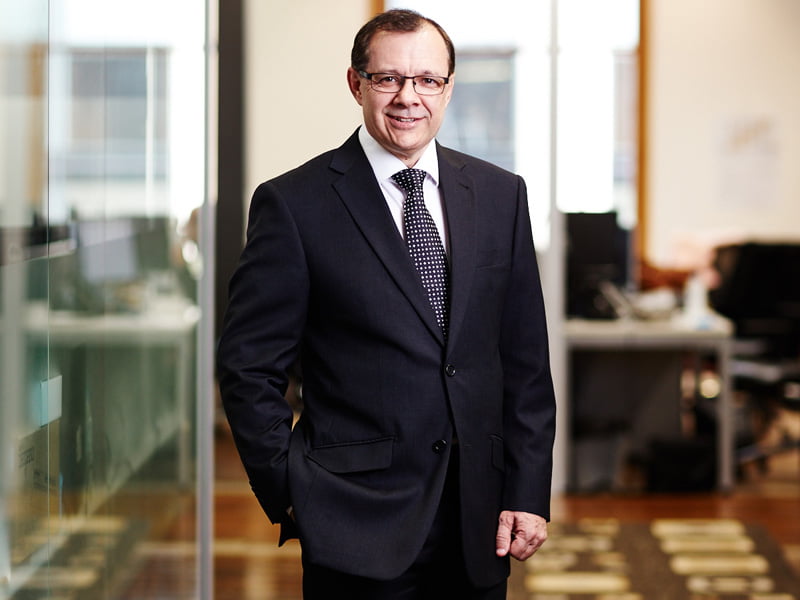Australian wealth accounting platform innovator, Class Software, was pretty blessed when it was in startup mode. It had access to a client base of high net worth individuals who became its early investors.
The company, which now employs more than 55 staff and will list on the Australian Stock Exchange later this year, is now significantly beyond that raise-capital-or-fail stage of life.
Class chief executive officer Kevin Bungard still makes the point, though – if you are an Australian company starting out, funding remains the biggest road-block.

This is not news to anyone who has founded a tech startup, he says, but it needs to be mentioned at every opportunity because it remains a persistent issue.
Class’s flagship product is a cloud-based management software for self-managed superannuation funds (SMSFs). The company was founded in 2005, with a cloud product introduced in 2009.
The company has more than 85,000 funds on the platform and is adding them at a rate of about 1,000 per week. Most of the funds are run through its accountant clients, but some are managed directly by retirees and other reps.
The company has launched other wealth management products – most recently its Class Investment Reporter – which is a platform for other wealth management vehicles (instead of SMSFs, it targets other investment vehicles like Family Trust structures).
Mr Bungard says the Super product, while immensely successful and still growing fast, is built for what is a uniquely Australian market – Superannuation. But its’ Investment Reporter and other planned products present a more global opportunity.
Having made it through the difficult early growth stage, the company is already paying shareholders dividends – such is the business’ performance. The IPO is more about giving its shareholders a market to de-risk and diversify, if that’s what they want.
“The founders of our company had really strong links to self-managed super funds and to self-funded retirees and their accountants,” Mr Bungard said. “We were very fortunate in that regard, in that they were patient investors, they stuck with us in the years where we were building and through the GFC.”
“So we were incredibly fortunate in that regard [raising money]. But if we didn’t have that opportunity [to talk to SMSFs], I am not sure how we would have fared. If we were in startup mode right now, it would be a problem. There are some real structural deficiencies around getting funding right now,” he said.
What has government done well? And what could it be doing better?
Mr Bungard says the company accessed and was grateful for the R&D tax offsets program. It works, he said, and has been very helpful.
More importantly, though, are the changes to legislation governing employee share schemes.
Mr Bungard says the ESS changes have arrived a little too late for Class, although it will make use of the program in some way ahead of its IPO. The company certainly welcomes the changes, saying the government has not just gone back to the old system, but made significant improvements as well.
“It would have been nice if these changes came a little earlier. We really struggled with being able to have incentives for our staff – especially those that came on board early,” he said. “Being able to offer incentives is absolutely critical in helping to build a business, so that employees are engaged and don’t give up after a couple of years to go off and join a big institution where they could earn more money.”
“We can afford to do that stuff now, and we have a variety of incentives for staff. But it would have been a lot better for us if we had been able to do this [offer share options] much earlier on.”
The other key to policy development that Class sees as critical for smaller Australian companies is simply consistency.
Mr Bungard points to the Australian Taxation Office’s SuperStream reporting automation initiative as an example.
Class was early to see the potential of the SuperStream initiative, and invested straight away in developing product features in Class Super to take advantage of it. But over time – and likely the result of lobbying from some of the bigger institutional players – the ATO de-scoped the SuperStream project and extended its deadlines (by a year).
“That was a huge blow for us,” Mr Bungard said. “Having invested in getting our product ready, we really invested a lot of time and resources into getting something like a first-mover advantage.”
“They basically kept watering it down and pushing out the deadline. They started with a broader ambition, but then de-scoped it,” he said. “But our investment was made on the basis of the initial plan.”
Mr Bungard said these decisions can have a serious commercial impact on smaller competitors – the companies that are generally the most innovative.
“This is genuine problem, and it certainly has an impact.” As governments move services to increasingly digital platforms, these decisions will have greater impact.
And they will always hurt small innovative providers harder than the bigger technology giants.
This is the second of our High-Growth Focus features, to be published every Wednesday in InnovationAus.com. You can read last week’s maiden feature here.
Do you know more? Contact James Riley via Email.

